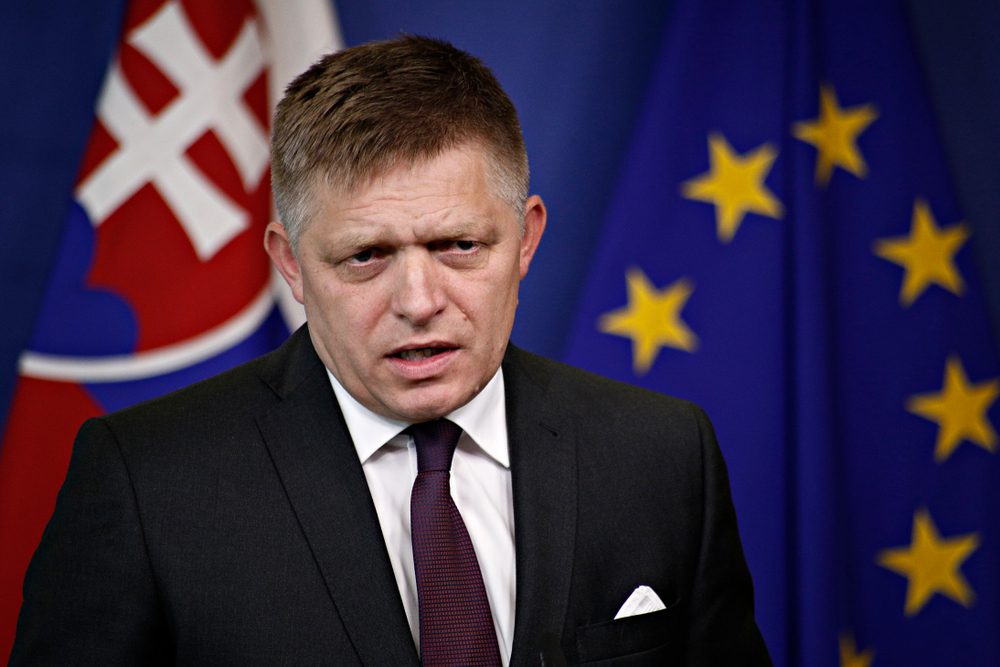
Parties on the extreme right of Slovakian politics could be set to enter a coalition later this year as the country’s largest opposition party Smer veers rightward and scouts out junior partners ahead of an election scheduled for September 30th.
The country has an unusually strong far-right, extending from overtly neo-fascist parties to a major social democratic party, Smer. However, Smer is increasingly embracing socially conservative positions that challenge the pro-NATO policy of the current government.
Slovakia has had three prime ministers since 2020 when elections were last held. Currently, as the country struggles to deal with the impact of EU energy sanctions against Russia, it also faces a spiralling cost of living crisis.
The Central European nation of five and a half million has been governed by a technocratic government since May of this year, following the resignation of its centre-right pro-NATO Prime Minister Eduard Heger, which was triggered by a spate of ministerial resignations.
The country has become notorious for its deep political fragmentation and its pro-Russian sympathies despite being a member of NATO. Smer, a nominally socialist party, has, under former Slovakian Prime Minister Robert Fico, led the backlash against NATO and a move towards rapprochement with Moscow.
Smer is in a pole position to come out on top in the September elections and has rattled many liberals in Brussels for objecting to continued Slovakian support for Ukraine, its social conservatism, and direct overtures to the ultra-right.
Smer enjoys a small lead in opinion polls, which show a divided field, with no party in command, as public support for the pro-EU HLAS Social Democratic party wanes.
Slovakia: amid a government crisis, two opposition parties, centrist Direction – Social Democracy (SMER-S&D) and centre-left VOICE – Social Democracy (HLAS-S&D) compete for first place in our polling average.
— Europe Elects (@EuropeElects) May 13, 2023
SMER has a slight lead with 18%.
See more: https://t.co/r2qC5RtiKo pic.twitter.com/QsvPED3nZH
Smer leader Robert Fico strongly opposes the EU asylum pact currently being battled over in Brussels. He also opposes Ukraine’s EU accession despite his party remaining a member of the pro-EU S&D group in the European Parliament.
The poll shows two parties from the nation’s hard Right, the Slovak Nationalist Party (SNS) and Republika, have approximately 12% of the vote between them. They are actively courting Smer in the hopes of forming a grand coalition come September.
Slovakia has a vibrant ultranationalist political scene rooted in semi-latent pro-Axis sympathies and anti-Roma sentiment. However, both SNS and Republika have begun a process to sanitise their images in an attempt to gain mainstream appeal.
Republika split from the overtly neo-Nazi People’s Party Our Slovakia in 2021 after a power struggle. Many of Republika’s senior representatives have been accused of overt antisemitism.
The EU socialist alliances have called for Smer to be expelled from the group after confirming it was courting Republika. Many observers have noted a recent rightward shift in the party whereby it has embraced anti-LGBT, and pro-family policies despite remaining on the economic Left.
Elections in September are expected to be mired in accusations of Russian meddling as pro-EU politicians blame Russian disinformation for the rise of Smer rather than the grave cost of living crisis.
Since the invasion of Ukraine, Slovakia has played an important role in supplying weapons, and NATO has added German-led rapid-response battlegroups in the east of the country should the conflict escalate.
The potential election of an overtly pro-Russian government in Slovakia would further upset the EU balance of power as countries on the periphery of the Union weigh up the costs of continued sanctions against Russia. This week the White House applied diplomatic pressure on Hungary and Turkey for objecting to Swedish membership in NATO. The election of a pro-Russian cabinet in Slovakia would only make things worse for the military alliance.
Whether it be the inclusion of parties of the hard Right or a new chink appearing in NATO and the EU’s geopolitical armour against Russia, the September elections in Slovakia are likely to be more important than the nation’s size would suggest.
